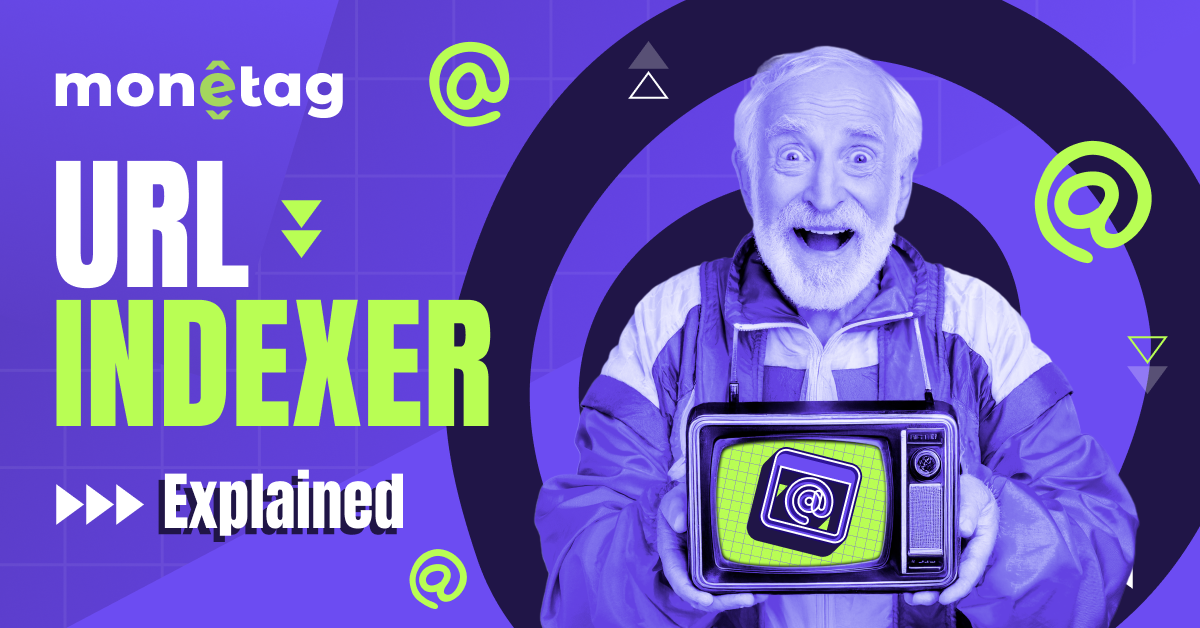URL Indexer: How to Get Google to Index Your Site

Have you ever thought about how websites find their way to Google’s search results? How this search engine finds your website and makes sure it shows it exactly where it should?
Sure, there are a lot of factors that come into play but one of the most important ones is URL indexing.
URL indexing is a process that makes your website discoverable to search engines. Without it, your site would probably get lost in the world wide web. It’s what makes sure your content is recognized for what it is and comes up in relevant search queries.
And let’s make one thing clear, it’s not enough to just have a website, if you want to get noticed, you need to understand URL indexing, how it works, and what strategies you can use to make sure your site gets indexed swiftly and efficiently.
What Is a URL Indexer?
A URL indexer is simple enough to understand, despite the fact it’s a complicated process. Basically, it’s a tool that helps search engines discover and catalog all the pages on a website.
Let’s say you managed to create an incredible website that has so much to offer, but it’s just sitting there, like a hidden gem on the Internet. A URL indexer will then be the spotlight that draws attention to the site and makes it easier for search engines to find and rank it.
URL indexers are incredibly valuable for any and all websites online, but especially those that have a lot of pages. Imagine if you had to submit all of your URLs one by one so they could be examined.
Torture, right?
Well, URL indexer tools automate the process. Easy peasy.
By using a URL indexer, you’re making sure that your site gets discovered much quicker, which helps improve your visibility and ultimately attract more visitors.
Types of URL Indexers
There are several types of URL indexers, each designed to cater to different needs. Let’s look at a few options:
- Bulk URL indexers
These are ideal for websites with a large number of pages. If you use a bulk indexer, also known as a mass URL indexer, you’ll be able to submit multiple URLs at once. If you have a website that has hundreds or maybe thousands of pages, you won’t go wrong with a bulk URL indexer.
- Automatic URL indexers
Now, an automatic URL indexer is a tool that works behind the scenes and automatically submits your URLs to search engines with each new piece of content you publish. If you don’t have the time to manually track and submit every page (or simply don’t feel like it), an automatic indexer will save you so much time.
Of course, both of these sound great and you should know that there isn’t a reason why you should choose between one or the other. That this isn’t an “either-or” situation. A URL indexer can be either bulk or automatic, it can be both, or it can be neither. So when you’re trying to figure out what indexer you want to use, think about what capabilities you’re looking for.
Why URL Indexers Are So Convenient
URL indexers provide numerous benefits that can simplify your SEO efforts and boost your website’s performance:
Automation Saves Time
How did website owners ever find the time to do anything other than run their sites before automation? Let’s be real, manually submitting URLs can be tiresome, especially for large sites.
If you let an automated URL indexer run the show, you can just kick back and relax.
Handling Large Numbers of URLs
It doesn’t matter if you have one or one thousand pages, a small blog, or a huge website, your URL indexer will have you covered. Regardless of how many pages you have and what kind of content is on them, your indexer will handle all those URLs and make sure all pages are indexed in no time.
Improved Rankings
We all know that too many factors play a role in how your website ranks, but all your optimization efforts can basically be flushed down the toilet if search engines can’t crawl and index your site’s pages quickly. URL indexers can help your site rank higher in search results, increasing your visibility and traffic.
Better Website Visibility
The sooner your pages get indexed, the larger your chances of showing up in relevant searches are. And as well all know, better visibility means more visitors, and more visitors means a much bigger brand awareness or higher sales, whatever you’re after.
How to Choose the Best URL Indexer
By now, you’ve probably figured out that URL indexers are not only an important tool for any website owner but an irreplaceable one as well. Because of that, the market is filled with them, and it can get slightly overwhelming trying to find one that’s just the right fit for your needs.
So, to make the process easier for you, think about the following factors:
- Ease of use: The best tools are intuitive and user-friendly, allowing you to submit URLs and monitor indexing status without complications.
- Speed: Time is crucial in SEO. Select a URL indexer that can submit your URLs and get them indexed quickly.
- Bulk indexing features: If your website has many pages, opt for a URL indexer that supports bulk submission for mass indexing.
- Integration with other SEO tools: Choose a URL indexer that works well with other SEO tools, such as Google Analytics or Ahrefs, for seamless workflow integration.
- Cost: There are free and paid URL indexers. Consider your budget and whether a premium option’s additional features justify the cost.
Top URL Indexer Tools
While knowing what features you should be on the lookout for can be helpful, there are still way too many tools out there for you to examine each one. So, to make your search a little easier, let’s talk about some of the best ones currently on the market.
- Google Search Console: A free tool from Google that allows website owners to monitor their site’s performance in search results. It comes with a URL inspection tool for manual submissions. However, it doesn’t have bulk indexing capabilities.
- Indexification: A premium URL indexer that offers bulk URL submission, automatic indexing, and detailed reports. It integrates with popular SEO tools like Ahrefs and Semrush, but it requires a paid subscription (starting at $19/month).
- Rank Math: A popular WordPress plugin with an integrated URL indexer that allows submissions directly from the dashboard. While it’s easy to use, it only supports individual URL submissions.
- Screaming Frog SEO Spider: A powerful website crawler that can extract URLs from your site, which you can then submit to Google Search Console. It’s perfect for large sites but it does require some more technical know-how.
- SEO PowerSuite: A comprehensive suite of SEO tools with a built-in URL indexer. It supports bulk submissions and integrates with other SEO tools like Ahrefs and Semrush. Paid plans offer advanced features, while a free version has limited capabilities.
Final Thoughts
Without URL indexing your content would never be noticed by search engines оr users, and you don’t want that, do you? But if you use the right URL indexer software, you can make sure that your website is quickly discovered, indexed, and ranked.
So, take the time to choose the right tool, and let URL indexing help you get the rankings you deserve. Your future visitors (and your bottom line) will thank you.









